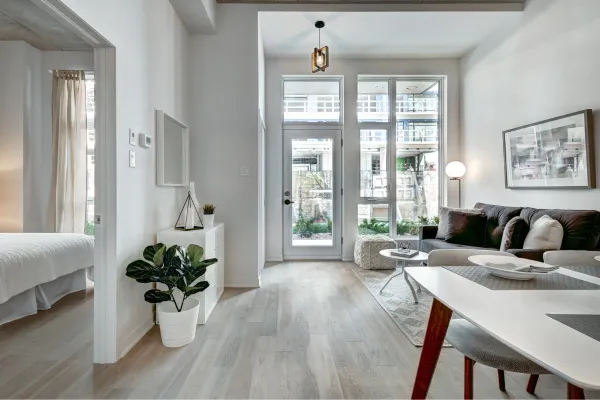Inner Light Legion
YOU ARE THE UNIVERSE. YOU ARE EVERYTHING.

Your Mental Apartment
Introduction
Brief overview of the importance of self-talk and its impact on mental health.
Understanding Negative Thoughts
Definition and types of negative thoughts.
How negative thoughts contribute to depression and anxiety.
The Concept of Your Mental Apartment
Introduction to the metaphor of the mental apartment.
How our minds can be compared to living spaces.
Identifying Negative Thought Patterns
Recognizing common negative thought patterns.
Examples of negative self-talk and their effects.
Impact of Negative Thoughts on Your Mental Apartment
How negative thoughts clutter and disrupt our mental space.
The cycle of negativity and its consequences.
Cleaning Up Your Mental Apartment
Strategies for decluttering negative thoughts.
Techniques for maintaining a positive mental space.
Replacing Negative Thoughts with Positive Affirmations
The power of positive affirmations in reshaping thought patterns.
Creating personalized affirmations for combating negativity.
Mindset Shift: Transforming Your Mental Apartment
Cultivating a growth mindset.
Embracing resilience and adaptability.
Seeking Professional Help
When to consider therapy or counseling.
The benefits of professional support in managing negative thoughts.
Practicing Mindfulness and Self-Compassion
Incorporating mindfulness techniques into daily life.
Showing compassion towards oneself during challenging times.
Building a Support System
The importance of surrounding yourself with positive influences.
Seeking support from friends, family, or support groups.
Maintaining a Healthy Lifestyle
The connection between physical and mental well-being.
Overcoming Setbacks
Coping strategies for setbacks and relapses.
Learning from past experiences to move forward.
Celebrating Progress and Small Victories
Recognizing and celebrating moments of growth.
The importance of acknowledging progress, no matter how small.
Conclusion
Your Mental Apartment and Negative Thoughts
Negative thoughts can often act as unwelcome “tenants” (if you will) in the space of our minds, cluttering our mental apartment and casting shadows on our well-being. From the book "What to Say When You Talk to Yourself," this post will take a tour in the detrimental effects of negative thoughts on our mental health associated with depression and anxiety.
Introduction
When we talk to ourselves, negative thoughts hold significant power, influencing our emotions, behaviors, and overall outlook on life. Understanding the impact of negative self-talk is crucial for maintaining mental wellness and combating conditions like depression and anxiety.
Understanding Negative Thoughts
Negative thoughts encompass a wide range of internalized criticisms, doubts, and fears that we bury into our subconsciousness. If you want to read more on the subconscious mind, here is another post for you. Whether it's self-criticism or self-hate, these thought patterns can fuel feelings of inadequacy and hopelessness, contributing to the onset or exacerbation of mental health issues.
The Concept of Your Mental Apartment
Imagine your mind as an apartment, a space where you reside day in and day out. Just like a physical living space, your mental apartment requires upkeep and maintenance to ensure a harmonious environment. Negative thoughts or clutter, debris, or old furniture can disrupt the tranquility of this space, creating chaos and unease.
Identifying Negative Thought Patterns
To effectively combat negative thoughts, it's essential to first recognize their presence and identify recurring patterns. Whether it's negative self-talk, cognitive distortions, or irrational beliefs, understanding the root causes of these thoughts is the first step towards reclaiming control of your mental space.
Impact of Negative Thoughts on Your Mental Apartment
The accumulation of negative thoughts or the hand-me-down furniture as Shad Helmsetter puts it, passed down from your grandparents, parents, friends, or teachers, can gradually overwhelm your mental apartment, transforming it into a bleak and inhospitable environment. This cycle of negativity can perpetuate feelings of despair and isolation, making it challenging to envision a brighter future.
Cleaning Up Your Mental Apartment
Decluttering your mental space involves actively challenging and reframing negative thoughts. Not only do you need to remove the old furniture but you need to replace it with new fixtures. In other words, working to get rid of the negative thoughts is step one. Step two is doing the work to replace everything with positive thoughts or vocabulary. Techniques such as cognitive restructuring, journaling, and mindfulness, or doing a physical activity can help you clear away the debris of negativity, creating room for more positive and constructive thinking.
Replacing Negative Thoughts with Positive Affirmations
Positive affirmations serve as a great tool to combat negative self-talk, offering reassurance and encouragement in times of doubt. By consciously cultivating a list of affirmations tailored to your life needs, goals, and aspirations, you can gradually overwrite negative thought patterns and cultivate a more optimistic mindset.
Mindset Shift: Transforming Your Mental Apartment
Embracing a growth mindset involves viewing challenges as opportunities for growth and learning. By reframing setbacks as temporary obstacles rather than impossible barriers, you can foster resilience and grit in the face of adversity.
Seeking Professional Help
There's no shame in seeking professional support when negative thoughts become overwhelming. Do NOT let anyone tell you otherwise. Therapists, counselors, and mental health professionals offer valuable insights and tools for managing mental health challenges, providing a safe space to explore and address underlying issues.
Practicing Mindfulness and Self-Compassion
Mindfulness practices create present-moment awareness, allowing you to observe and acknowledge negative thoughts without becoming entangled in them, because you are not your thoughts. Similarly, self-compassion encourages kindness and understanding towards yourself, fostering a sense of inner peace and acceptance.
Building a Support System
Surrounding yourself with supportive individuals who uplift and encourage you is essential for maintaining mental well-being. Whether it's friends, family members, or support groups, having a reliable support system who doesn't give you hand-me-down items, can provide comfort and validation during difficult times.
Maintaining a Healthy Lifestyle
Physical health and mental health are deeply interconnected, with lifestyle factors playing a significant role in overall well-being. Prioritizing activities such as exercise, nutritious eating, and adequate sleep can bolster your resilience against negative thoughts and promote emotional equilibrium.
Overcoming Setbacks
Setbacks are a natural part of the journey towards mental wellness. Instead of viewing setbacks as failures, approach them as opportunities for growth and self-reflection. By embracing them and learning from past experiences, you can navigate obstacles with grace and determination, without dwelling in the past and causing you to feel depressed.
Celebrating Progress and Small Victories
Even with the challenges of managing negative thoughts, it's essential to celebrate moments of progress and achievement. Whether it's a small step towards a personal goal or a newfound sense of self-awareness, acknowledging your growth builds a sense of pride and inspiration.
Conclusion
Your mental apartment is a sacred space that deserves care and attention. By recognizing the impact of negative thoughts or the old, dusty, and broken furniture, and implementing methods for getting rid of that clutter, you can produce a more positive mindset. Remember, your mental health is worth investing in, and with time and effort, you can create a space filled with light, positivity, and possibility.
FAQs
How do I know if my negative thoughts are becoming a problem?
Persistent negative thoughts that interfere with your daily functioning or cause significant distress may indicate a more serious issue. It's essential to seek support from a mental health professional if you're struggling to manage your thoughts.
Can medication help with negative thoughts?
In some cases, medication may be prescribed to alleviate symptoms of depression or anxiety, including negative thinking patterns. However, medication should be used in conjunction with therapy and other coping strategies for optimal results.
Is it normal to have negative thoughts occasionally?
Yes, it's entirely normal to experience negative thoughts from time to time, especially during challenging or stressful situations. However, if negative thoughts persistently interfere with your well-being, it may be helpful to explore coping strategies and seek support. Remember you are not your thoughts.
How long does it take to change negative thought patterns?
The process of changing negative thought patterns varies from person to person and depends on various factors, including the severity of the thoughts and the individual's willingness to change. With dedication and practice positive changes can occur over time.
Subscribe To Stay Connected.
Simply enter your email below and get a monthly book recommendation, new blog posts, and other content that's meant to inspire and motivate you.
Follow The Legion
© Copyright Inner Light Legion 2026
